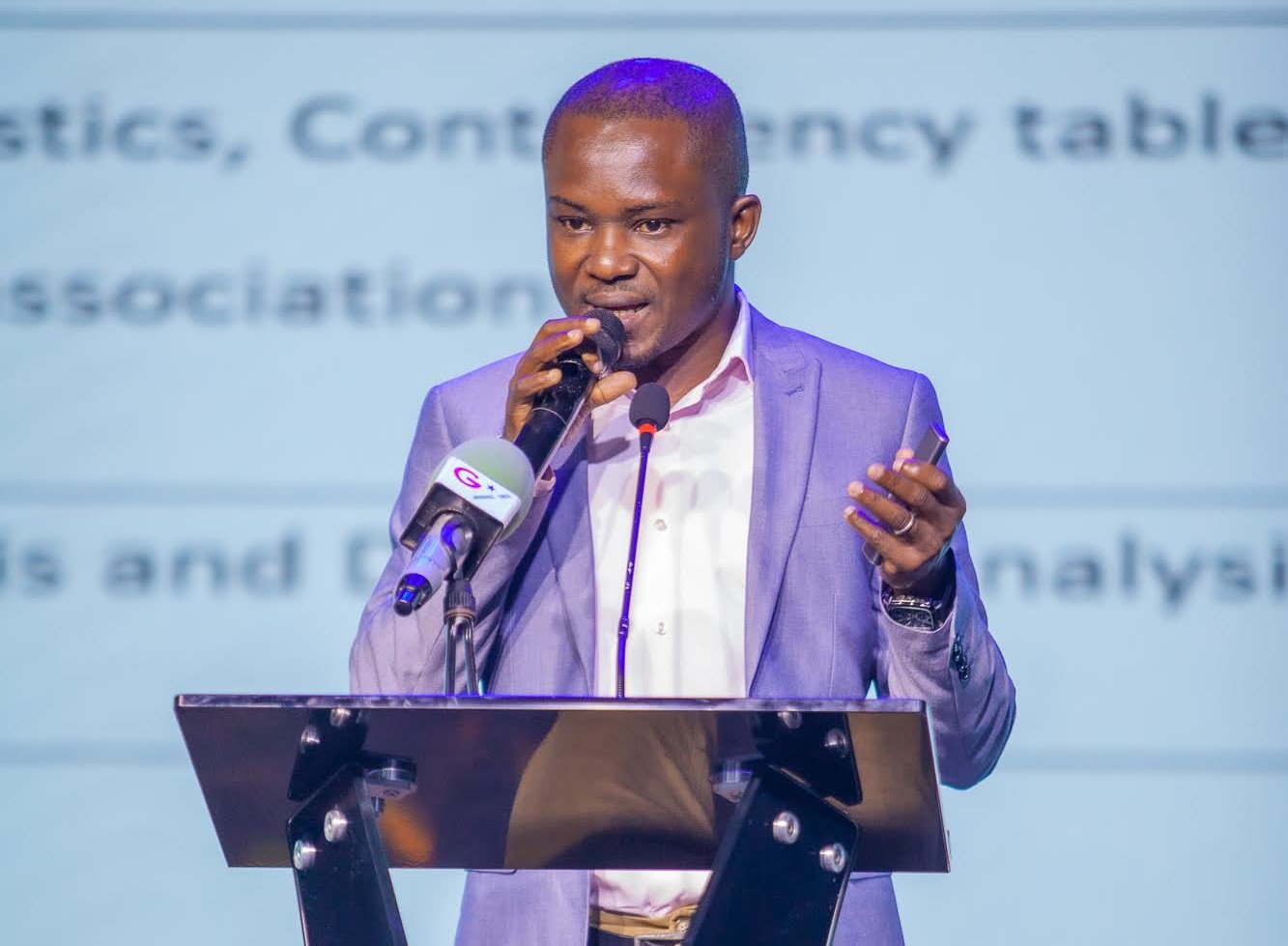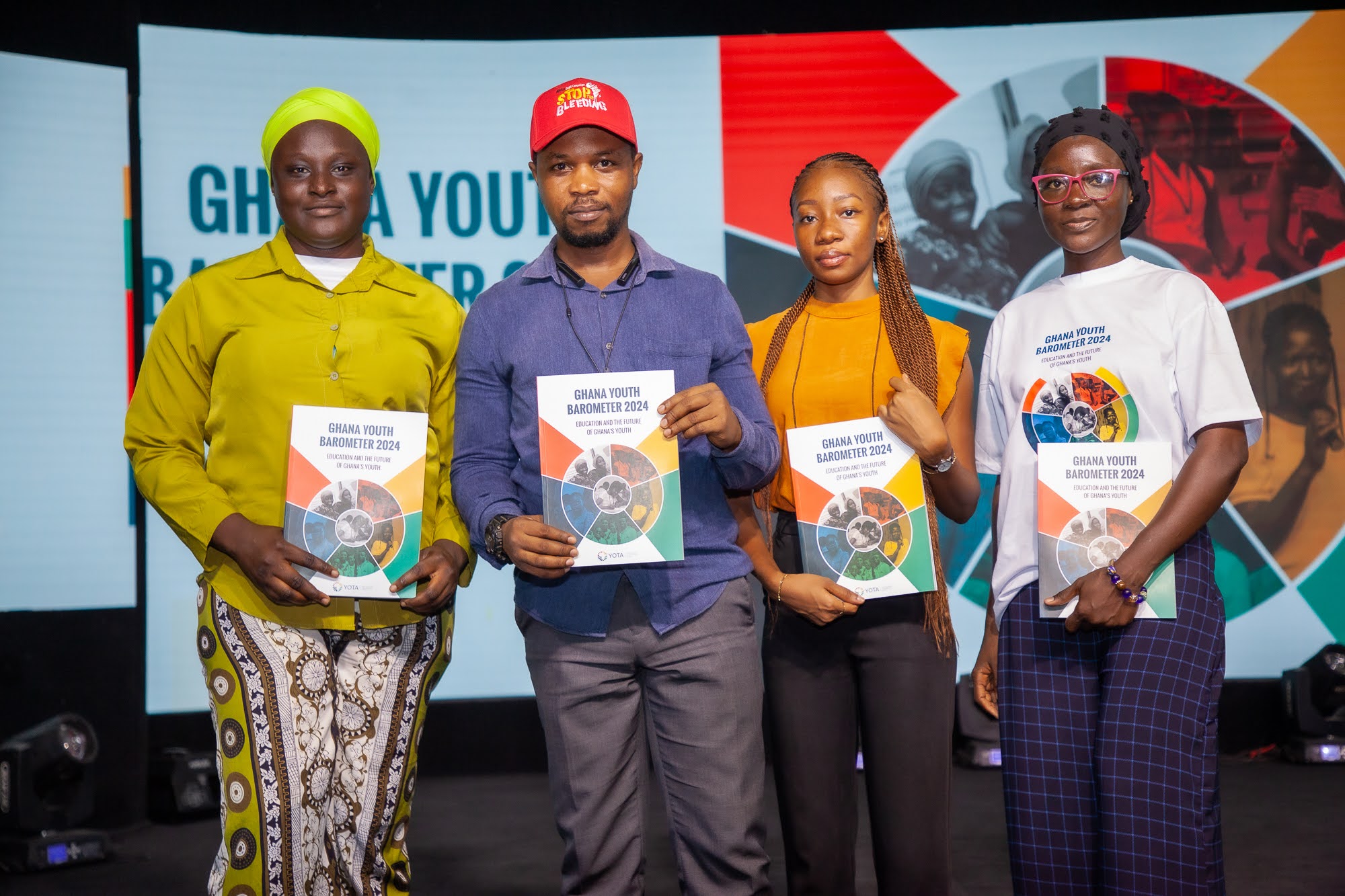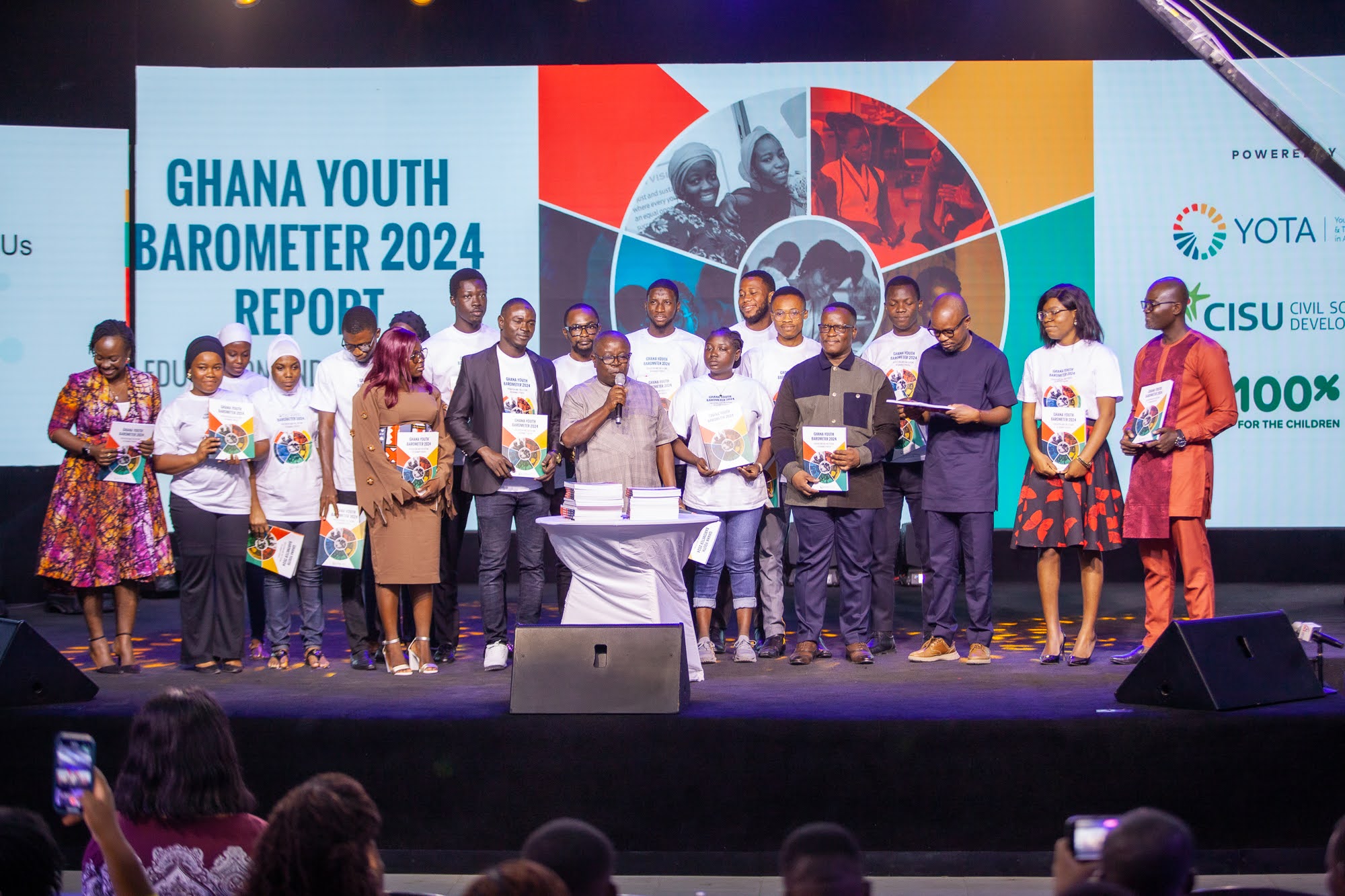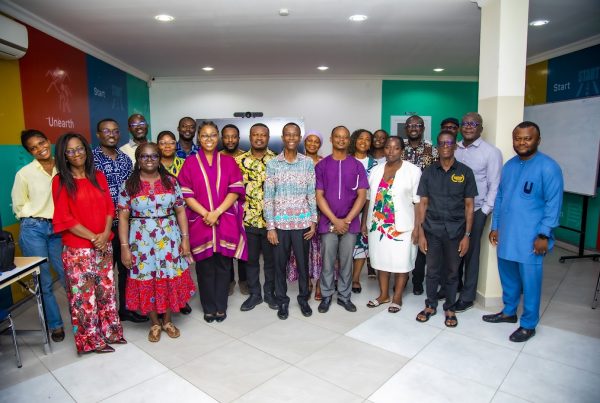Accra, August 22, 2024 – Addressing critical gaps in Ghana’s education system and the future prospects of its youth, Youth Opportunity and Transformation in Africa (YOTA) convened a significant gathering of young people, key institutions, and stakeholders for the Youth Development Dialogue and the official launch of the Ghana Youth Barometer 2024 Report.
The event focused on the pressing issues impacting Ghanaian youth, particularly in the realms of education and future opportunities. The highlight of the day was the unveiling of the Ghana Youth Barometer 2024 Report, a comprehensive and nationally representative study that captures the voices and perspectives of young people across the country. This initiative, part of the Youth on Board project led by YOTA in partnership with 100% for the Children and funded by the Danish Civil Society for Development Fund (CISU), represents the dedicated efforts of 32 youth researchers, two from each of Ghana’s 16 regions, under the guidance of lead researchers Dr. Thomas Yeboah and Dr. Emmanuel Kumi.

Research Presentation by Dr. Thomas Yeboah
In a compelling presentation, Dr. Thomas Yeboah outlined key findings from the report, revealing significant challenges faced by Ghanaian youth. Notably, 88.1% of young people identified the lack of financial resources as the top barrier to accessing education. Furthermore, the report highlighted that while 67.5% of youth expressed a desire to venture into self-employment, they are hindered by inadequate financial and social capital. The findings also underscored the disparities in educational opportunities, with youth in rural areas facing higher costs and fewer opportunities for quality education compared to their urban counterparts. Additionally, 69.7% of respondents pointed to the misalignment between the current educational curriculum and the demands of the job market as a major concern.

Panel Discussion
The event also featured an engaging panel discussion with Dr. Thomas Yeboah, Doreen Appiah-Num, a member of the Voices of Youth Coalition, John Takorah, a youth researcher, and Dr. James Natiah Adam. The discussion provided a platform for in-depth exploration of the report’s findings and invited contributions from the audience and industry stakeholders to map out potential solutions.
A particularly poignant moment came when Ramatu Salifu, a visually impaired youth researcher and Voices of Youth Coalition member, shared her experiences from the field. She recounted witnessing the stigmatization of a person with a disability during her data collection efforts and issued a powerful call to action for increased awareness and education to ensure full inclusion of all young people, regardless of their abilities.

Youth attendees holding copies of the Ghana Youth Barometer 2024 Report
The Ghana Youth Barometer 2024 Report offers several key recommendations. In his keynote address, Dr. Dabesaki Mac-Ikemenjima, Senior Program Officer at the Ford Foundation, lauded the involvement of young people in the report’s development. He emphasized the importance of embedding digital skills within the youth population and ensuring that individuals with disabilities are central to all development initiatives.
The unveiling of the Ghana Youth Barometer 2024 Report is more than a landmark event; it represents a turning point in the journey to secure a better future for the nation’s youth. As Emmanuel Edudzie, Executive Director of YOTA, underscored, aligning all youth policies with educational reform is essential to bridging the existing gaps in the system. “We must do more to ensure that young people take their rightful place as drivers of economic progress,” he stated.
YOTA calls on the government, civil society organizations, and key stakeholders to act on the report’s recommendations to create a brighter future for all Ghanaian youth.







